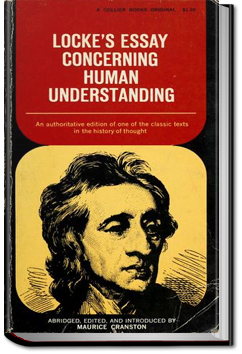

23. Difference of Men's Discoveries depends upon the different Application of their Faculties.
To conclude: some ideas forwardly offer themselves to all men's understanding; and some sorts of truths result from any ideas, as soon as the mind puts them into propositions: other truths require a train of ideas placed in order, a due comparing of them, and deductions made with attention, before they can be discovered and assented to. Some of the first sort, because of their general and easy reception, have been mistaken for innate: but the truth is, ideas and notions are no more born with us than arts and sciences; though some of them indeed offer themselves to our faculties more readily than others; and therefore are more generally received: though that too be according as the organs of our bodies and powers of our minds happen to be employed; God having fitted men with faculties and means to discover, receive, and retain truths, according as they are employed. The great difference that is to be found in the notions of mankind is, from the different use they put their faculties to. Whilst some (and those the most) taking things upon trust, mis
Get ALL YOU CAN BOOKS absolutely FREE for 30 days. Download our FREE app and enjoy unlimited downloads of our entire library with no restrictions.
Have immediate access and unlimited downloads to over 200,000 books, courses, podcasts, and more with no restrictions.
Everything you download during your trial is yours to keep and enjoy for free, even if you cancel during the trial. Cancel Anytime. No risk. No obligations.
For just $24.99 per month, you can continue to have unlimited access to our entire library. To put that into perspective, most other services charge the same amount for just one book!

As avid readers, we understand the joy of immersing ourselves in a captivating story or getting lost in the pages of a good book. That's why we founded All You Can Books back in 2010, to create a platform where people can access an extensive library of quality content and discover new favorites.
Since our founding days, we’ve continuously added to our vast library and currently have over 200,000 titles, including ebooks, audiobooks, language learning courses, podcasts, bestseller summaries, travel books, and more! Our goal at All You Can Books is to ensure we have something for everyone.
Join our community of book lovers and explore the world of literature and beyond!
Even though Locke, a staunch proponent of empiricism, believes our minds to be a tabula rasa that are equipped with